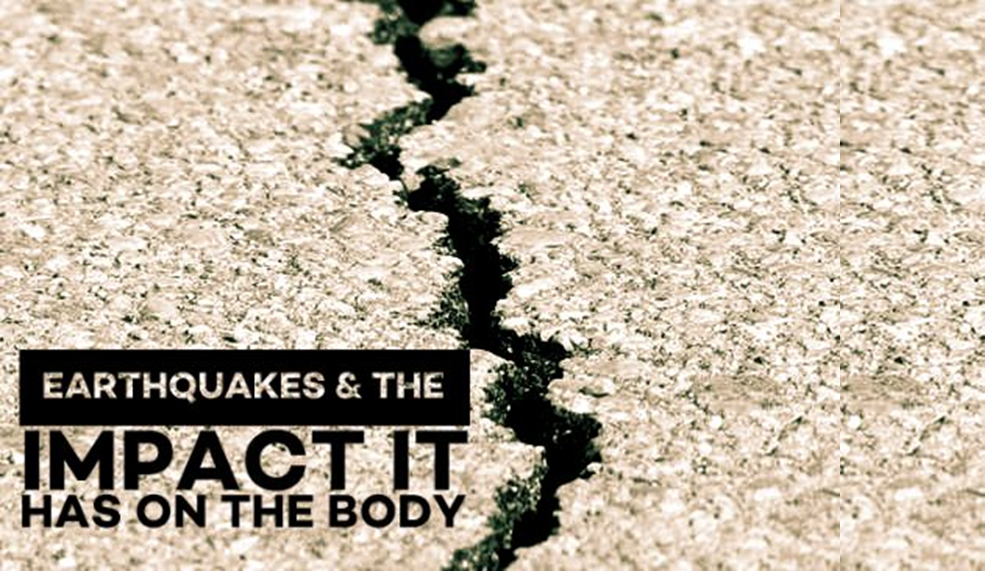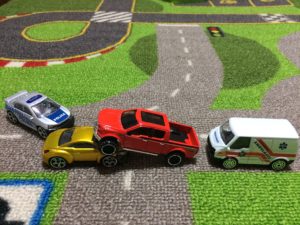
As you may know, we have been experiencing earthquakes for some time in Southern California, with them becoming more frequent in the last few months, and quite larger in the past few week. On top of that, there have been talks of a larger earthquake hitting home in the near future. Understandably, nerves are rattled.
To help alleviate some of the stress you may be experiencing, we want to share that your body is designed to survive an earthquake.
Your body can absorb shock as we it’s created to be flexible and your spine is comprised of built in shock absorbers.
The fact is, if you weren’t equipped with such “shock absorbers,” at least shock absorbers working in optimal condition, you could tremendously suffer from everyday stressors to the body such as playing a game of catch with the kids or going out for a morning jog.
Jogging and running, for example, can be as damaging as someone hitting your heels with a hammer 1.5 to 3 times your body weight. Sports like golf, basketball, baseball, tennis, and football can stress your lower back and core depending on how much, how fast, and how hard you twist and pivot. Even daily activities like cleaning, working on a computer, driving, sitting for prolonged periods of time, picking up the kids, and carrying groceries can stress your spine and muscles. But, as long as your shock absorbers are in working order, you generally don’t have to worry.
So, how do you optimize and keep your shock absorbers in working order you may ask? It’s simple, you go in for regular chiropractic check-ups. Just like you see your dentist regularly (or at least you should), seeing a chiropractor regularly can improve your health, minimize future injuries, strengthen your spine health, increase your range of motion, and keep you protected during earthquakes.
Now, although our body’s can absorb shock, injuries can arise and what’s worse, stress about the unexpected and potential disasters can surface. This is problematic because studies have repeatedly confirmed that stress is a key player in causing pain and weakening the immune system. Therefore, we want to remind you that we are always here to help alleviate your pains and injuries, as well as strengthen your body in preparation of any sports, activities, and natural events.
If we are to compare our body to a house, our spine is analogous to a load bearing wall and our central nervous system to a home’s electrical system. However, whereas an earthquake can damage a home, the human body is thankfully designed to handle the shaking. That said, over time, certain motions can damage your body. Let’s take a look at the house analogy. Similar to an earthquake shifting and stressing a home over time, twisting and bending with certain sports and activities can misalign your spine, place pressure on your nerves, and unfortunately lead to disc degeneration, disc herniation, and osteoarthritis.
Therefore, impact from certain activities and injuries can add up and be more damaging than an earthquake itself: I.E. sports injuries, car accidents, falls, sleeping on a bad mattress, sitting for extended periods of times, working out, using a computer or texting, carrying heavy objects, etc.
Due to this, although you may feel fine, you must make sure your spine is properly aligned.
On an aside, if concerns arise, how can you tell something is wrong?
First, take note of any pain you may be suffering from, regardless if it’s excessive or minimal. Pain is a way of your body telling you something is wrong.
Second, subluxations (misalignments), pressure, or pinched nerves can present itself in a various ways. For example, headaches, vision problems, dizziness, fatigue, high blood pressure, or increased severity of allergies/asthma can be signs of subluxations in your cervical spine or neck. Heartburn, stomach issues, bronchitis, congestion, or kidney and liver issues, can be signs of subluxations in your upper back or thoracic spine. Sciatica, constipation, infertility, and low back pain, in turn, can be signs of subluxation in your lower back or lumbar spine.
Take note of these pains and make sure to contact Dr. Mehr of Foothill Family Chiropractic for a check-up and/or to treat any problems.
In short, earthquakes are common and experts are indicating a big one is overdue. Although you should definitely be prepared for an earthquake, don’t stop living. Continue to live your life and pursue a life of happiness, health, and success for yourself and your loved ones. To learn more, here’s a resource Los Angeles County has put together on earthquake preparedness.

